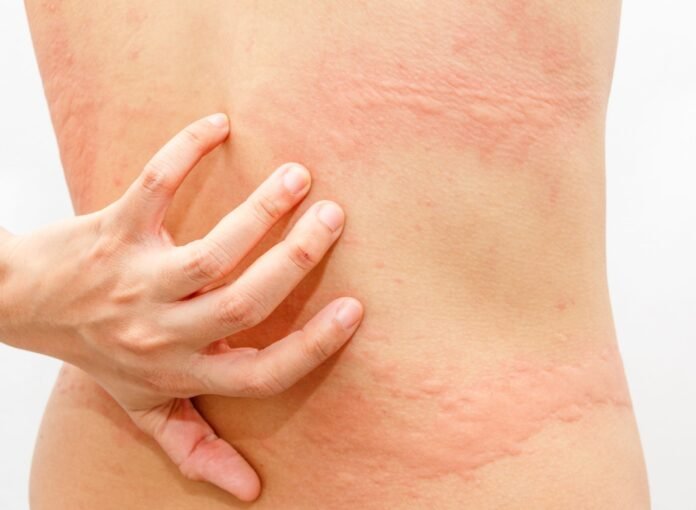For many seniors, skin issues can become more frequent and harder to manage with age. One such condition that can appear suddenly and persist for days—or even months—is urticaria, commonly known as hives.
Characterized by itchy, raised welts that can appear anywhere on the body, urticaria can be distressing and disruptive, especially for older adults who may already be dealing with other health concerns.
Understanding what urticaria is, why it happens, and how it can be managed is key to improving both comfort and quality of life.
What Is Urticaria?
Urticaria is a skin reaction that causes red, itchy welts or bumps on the skin. These welts can vary in size and may appear and disappear suddenly. In many cases, they fade within 24 hours, but new ones may continue to appear, especially in chronic urticaria, which lasts more than six weeks.
There are two main types:
- Acute urticaria: Short-lived and often triggered by allergies, medications, infections, or stress.
- Chronic urticaria: Long-lasting and often has no identifiable cause. It can become a persistent condition that flares unpredictably.
Why Seniors Are Affected
As people age, the skin becomes thinner, drier, and more sensitive. The immune system also changes, sometimes becoming more reactive or slower to respond. These factors make older adults more susceptible to skin irritations and allergic reactions. Additionally, seniors often take multiple medications (a situation known as polypharmacy), which increases the risk of drug-induced hives.
Other common triggers in seniors include:
- Certain foods (like shellfish, nuts, eggs)
- Infections (viral or bacterial)
- Heat or cold exposure
- Pressure on the skin (from tight clothing or sitting in one position too long)
- Stress and anxiety
Symptoms to Watch For
Urticaria often begins as small red or skin-colored bumps that quickly turn into raised, swollen welts. These may:
- Itch intensely
- Change shape or location
- Appear and disappear within hours
- Be accompanied by swelling in the lips, eyelids, or throat (angioedema), which can be more serious
In rare cases, hives can signal a severe allergic reaction (anaphylaxis), which is a medical emergency. Symptoms like difficulty breathing, dizziness, or a swollen tongue or throat require immediate attention.
Diagnosis and Treatment
If a senior experiences recurrent or unexplained hives, it’s important to consult a healthcare provider. Diagnosis typically involves a medical history, review of medications, and possibly allergy testing or blood work.
Treatment may include:
- Antihistamines: These are the first line of defense, helping reduce itching and inflammation.
- Avoiding triggers: Identifying and steering clear of specific foods, medications, or environmental irritants can help reduce outbreaks.
- Topical creams: Calming creams like calamine lotion or menthol-based ointments can soothe irritated skin.
- Corticosteroids: In more severe cases, short-term oral steroids may be prescribed to control inflammation.
- Lifestyle adjustments: Wearing loose clothing, using fragrance-free soaps, and managing stress can all support skin health.
For chronic cases, dermatologists may recommend stronger treatments such as immunosuppressive medications or biologics like omalizumab.
Coping With the Condition
Living with urticaria can be frustrating, especially when the cause isn’t clear. It can affect sleep, daily comfort, and self-esteem. For seniors, who may already be dealing with other health concerns, the added itch and unpredictability of hives can lead to emotional distress.
Support strategies include:
- Routine skin care using gentle products
- Cool compresses to ease flare-ups
- Mindfulness or relaxation techniques to reduce stress-related outbreaks
- Regular follow-ups with a doctor to adjust treatment if symptoms persist
Final Thoughts
Though urticaria may seem like a minor skin issue, it can have a major impact—especially in older adults. Understanding the nature of the condition, recognizing triggers, and pursuing the right treatments can make all the difference in managing symptoms. With the right care and awareness, seniors living with urticaria can regain comfort, confidence, and peace of mind.
